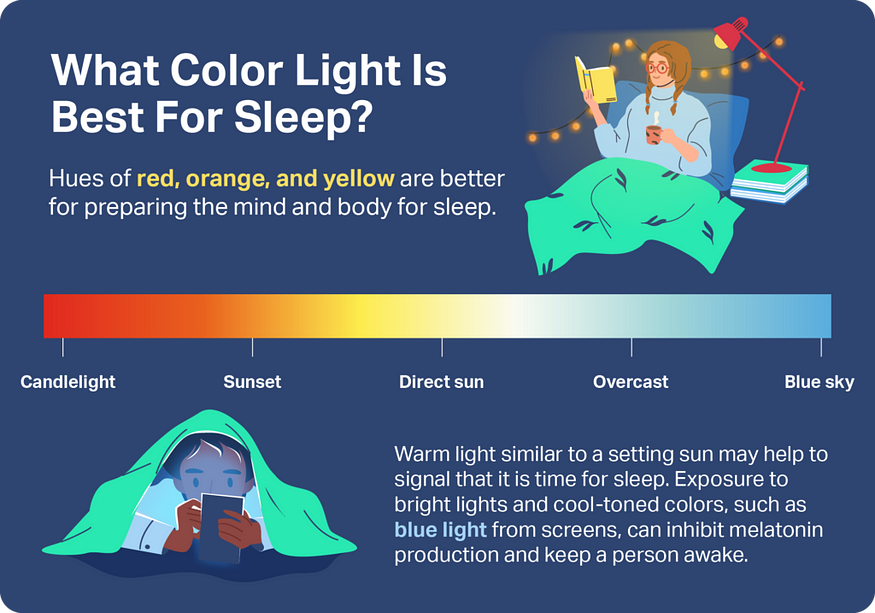5 Incredible Techniques to Protect Your Mental Well-being (in a busy world)
Disconnect to reconnect.

Let’s be honest!
When you open your eyes, is it your phone to which you say your first hello of the day?
Study shows 61% of people check their phones within 5 minutes of waking up.
Our day starts with our phones, goes with it, and ends on it.
Mobile phones are information devices with countless notifications, news alerts, work emails, chat messages, and social media updates continuously bombarding throughout the day.
Our minds are incredible, but they also have some limits. They can handle a specific amount of information effectively, but information overload could otherwise threaten our mental health.
“Your mental health is everything — prioritize it. Make the time like your life depends on it because it does.” — Mel Robbins
How does it impact your Mental health?
1. Stress and Anxiety
The pressure to stay informed and never miss out can leave you feeling stressed and anxious.
The fear of missing out (FOMO) has been an age-old problem with many of us.
Though FOMO isn’t a diagnosable psychological condition — at least not yet — this phenomenon can directly impact both mental and physical health.
2. Decreased Attention
“A wealth of information creates a poverty of attention.”
All that flashing, buzzing, and scrolling can shorten your attention span and make it hard to concentrate on anything for long.
3. Sleepless Nights
Melatonin is the hormone that regulates your sleep-wake cycles. The blue light emitted by electronic devices can interfere with its production.
Check if your mobile phone is responsible for problems with your sleep.
Avoid blue light from electronic devices as it can trick your brain into thinking it’s still daytime and disrupt your sleep-wake cycle.

4. Comparison Blues
Knowingly or unknowingly, we sometimes compare our behind-the-scenes lives with the curated and often fake lives of people on social media.
It can hurt your self-esteem and make you feel inadequate.
5. Tech Trap
Unchecked use of digital devices can make you addicted to them. It pulls you away from real-life connections and activities, leaving you isolated and lonely.
“Information overload will lead to ‘Future Shock Syndrome’ as an individual will suffer severe physical and mental disturbances.” — Alvin Toffler
How to Cope with Information overload?
1. Draw the Line
Your phone buzzing every 5 seconds isn’t excellent. You need to set boundaries for your mental health.
Set specific times to check emails and social media.
Have you ever wondered if the secret to a fulfilling life could be as simple as adjusting your sleep schedule?
What’s more effective than creating tech-free zones in your home (maybe the bedroom?) to give your brain a breather?
2. Practice Mindfulness
Life’s busy. But sometimes, we need a “time out” from the constant buzzing.
Meditation, deep breaths, and even mindful walks can do wonders.
They help you be in the moment instead of feeling overwhelmed by everything. It could be a “pause” on the mental noise.
3. Limit Screen Time
Set limits on your screen time each day.
Use apps or phone features to track how much you’re on them and find areas to cut back.
Maybe even challenge yourself to a “digital detox” where you disconnect entirely for a while.
4. Clean Up Your Online World
Unsubscribe from emails and notifications that don’t bring you joy, and unfollow accounts that make you feel down.
Fill your online space with things that inspire and uplift you!
5. Take Care of Yourself
Self-care isn’t selfish. It’s essential.
Exercise, spend time in nature, do a hobby, hang out with loved ones — whatever makes you feel good.
Remember, a happy, healthy you are better equipped to handle any tech overload!
Many of us often overlook information overload and the associated risk factors for our mental health and well-being.
Not only does it impact your mental health and efficiency, but it can be disturbing for your physical health, too.
Your health is your biggest wealth.
You can cope with information overload effectively through the above strategies.
Do not be afraid of calling out a therapist for your own good.
Ready to make 2024 your best year ever? If yes, then check out this video by Mel Robbins:





